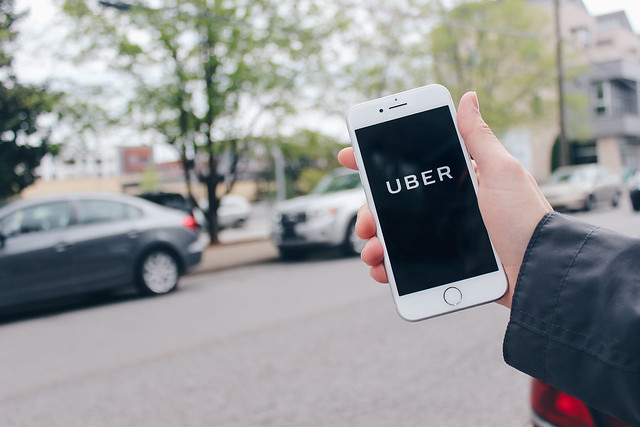With the development of large data on the Internet and the proliferation of smartphones, a new economic development model has emerged: the sharing economy. A sharing economy is a behavior that relies on a third-party sharing trading platform to connect suppliers and buyers, allow users to utilize various inactive resources, and generate profits. Providing products and services that are convenient to use in everyday life generates rewards for the provider. By temporarily obtaining the right to use products, demanders can satisfy their immediate requirements. Three service sectors dominate the sharing economy: hospitality (43%), transport (28%), and education (17%). In the hospitality industry, Airbnb is the dominant participant, whereas Uber is the leading fundraiser in the transportation industry. (Slee, 2017)
Benefits of Sharing Economy
Tom mentioned that the diverse appeal of the sharing economy attracts environmentalists, artisans, and the like. At the heart of the sharing economy is empowering individuals by fostering personal relationships over impersonal transactions, allowing people to establish meaningful connections and rediscover a lost sense of humanity. (Slee, 2017))As opposed to buying new resources, people in the sharing economy might pool their existing ones (like automobiles or lodging) to lessen their impact on the planet. In today’s sharing economy, people can make money by pooling their assets and offering their services to others. Trust, community, and cooperation are key to the sharing economy. It’s possible that relationships formed in this way are more “human,” genuine, and profound.
John mentioned that the development of technology, especially social media and information communication technology, is considered to be the driving force for the development of the sharing economy. (John, 2017) Technology is a key factor in the growth of the sharing economy. Not just because technology provides platforms and tools, but because technology culture promotes values of sharing and collaboration. John also mentioned that sharing in social media and the online community is seen as a mode of participation for people. This sharing not only resonates phonetically with the word “share,” but also establishes links in terms of values and associations. (John, 2017) This implies that people are accustomed to sharing and exchanging information, resources, and services. Such a culture promotes the acceptance of the sharing economy and amplifies its social benefits.
Privacy and security risks of the sharing economy
The sharing economy is expanding, and privacy and security concerns are receiving unprecedented attention. This business model promotes interpersonal communication and sharing, which results in the interchange of a lot of personal data, such as contact information, address, payment information, and behavioral patterns. Potential dangers include data loss, compromised physical security, and property harm. A substantial quantity of user data, including behavioral patterns, location data, and payment information, is collected by many sharing economy platforms. If this data is not securely protected, it could be exploited or compromised. Because of this, privacy and security are now essential components of the sharing economy, and how they are handled directly affects user trust, platform viability, and the long-term health of the entire business.
Case Study 1: short-term rentals
A website called Airbnb offers services for the short-term rental of homes or rooms to the general public. According to Ferguson, thousands of instances of account hacking, vacation funds being stolen through phony bookings, and numerous more scams were found through data analysis. Scammers frequently break into Airbnb guest accounts, reset passwords, and then book rooms in what might be fraudulent listings using the victim’s payment method. These listings may be controlled by them or affiliated with them, and they may use them to move funds and launder money. (Is Airbnb Safe? We Analyzed 127,183 Horror Stories to Find Out (2021), 2023)
Case Study 2: Shared transportation space
Platforms such as Uber and Lyft require drivers and passengers to provide a large amount of personal data, including their trip details, payment information, and personal data. Ward Spangenberg, who once served as a legal investigator for Uber, accused Uber’s internal staff of extensively collecting personal information of passengers and tracking their orders. Every user’s order is tracked in real-time, with thousands of Uber employees having this access. This means that employees can not only track political figures and celebrities but can also monitor their personal relationships, such as ex-partners. Spangenberg stated that this behavior stemmed from Uber’s lack of awareness about user data security. (Hern, 2017)
How to balance interests and risks
Within the context of the sharing economy, striking a balance between the benefits and drawbacks of participation is of the utmost significance. Because of this, it is necessary for users, service providers, platforms, as well as governmental entities and regulatory authorities to work together and participate in this endeavour.
- The role played by users is not limited to using the service.
Users are required to fully know the platform’s terms of service, select service providers who have received excellent ratings, protect their personal data, and make use of safe payment methods. Maintain engagement with other users, place a priority on using the platform’s communication capabilities, and be mindful of the risks connected with engaging in conversation with unknown individuals.
- Service providers and platforms are responsible for ensuring data protection and transparency.
Platforms must to put in place rigorous data privacy measures and avoid revealing or selling user information without first obtaining the users’ permission. Service providers are obligated to make their terms of service transparent, to encourage consumers to provide honest feedback, and, when applicable, to offer sufficient insurance coverage. Service providers and platforms can acquire the trust of their consumers by taking preventative steps to protect their users’ privacy and security and by maintaining open lines of communication with those users.
- Combining government oversight with incentive policies.
They are obligated to devise tough policies and regulations and put them into effect in order to guarantee the protection of consumer rights. Not only does this entail protecting customers from dishonesty and fraud, but it also requires ensuring that customers have access to adequate information and a variety of choices. Establish a setting that is risk-free and trustworthy for consumer spending.
Conclusion
The rise of the sharing economy has had a tremendous influence on people’s daily lives as well as their employment situations. In the field of social services, it is a force that cannot be ignored and possesses a massive amount of untapped expansion potential. The new business development model of the sharing economy has been questioned by all relevant parties despite the fact that it is still in its infant stages. Nevertheless, the birth of any new thing is never an easy or straightforward process. It will take some time before the sharing economy can truly show its potential. Through the combined efforts of all of the parties concerned, each and every facet will see steady improvement. The sharing economy will progress along the road of mature development thanks to improvements in system and management.
Reference
John, N. A. (2017, September 5). The Age of Sharing. John Wiley & Sons.
Slee, T. (2017, November 23). What’s Yours is Mine. Scribe Publications.
Is Airbnb Safe? We Analyzed 127,183 Horror Stories To Find Out (2021). (2023, April 15). Asher & Lyric. https://www.asherfergusson.com/airbnb/
Hern, A. (2017, July 14). Uber employees “spied on ex-partners, politicians and Beyoncé.” The Guardian. https://www.theguardian.com/technology/2016/dec/13/uber-employees-spying-ex-partners-politicians-beyonce




